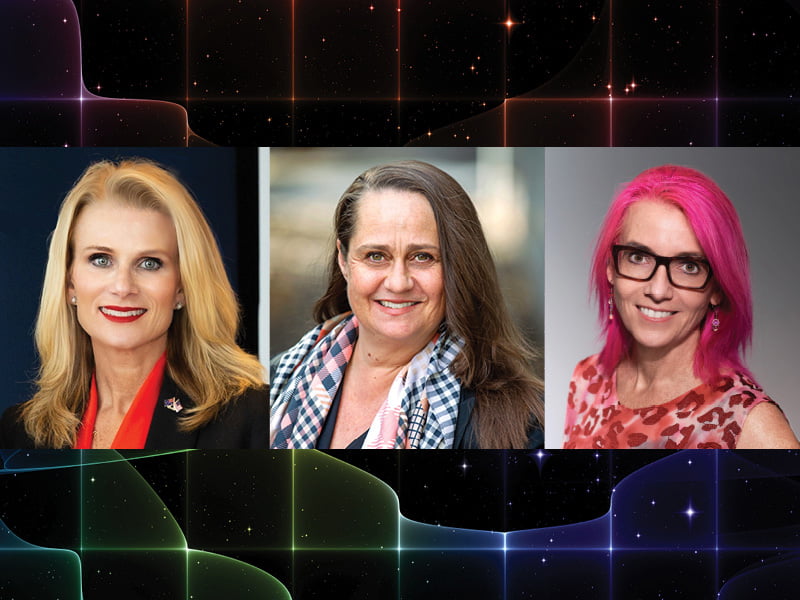It’s a year and a half into the COVID-19 pandemic and the long-term and substantial realignments in global supply chains are starting to become more obvious.
COVID exposed more risk in global systems than many companies and governments are comfortable with, and a massive restructuring of supply lines has begun.
Companies have sought to shorten and simplify supply chains as a direct result of the pandemic, and to apply new risk models that have them seeking out more trusted partners.
Onshoring is on the rise as national government put a new premium on sovereign capability and capacity. Near-shoring is very much a thing as companies seek to find suppliers closer to home. In the case of the United States, near-shoring would mean Canada and Mexico.
And then there are the supply-chain influences of geopolitical alignments. This is something that AmCham chief executive April Palmerlee is calling ally-shoring, where nations and companies collectively build trusted networks of strategic partners.

Ms Palmerlee, who was speaking on the Age of Trust podcast with Verizon Enterprise Solutions General Council for Asia and Canada MJ Salier and InnovationAus publisher Corrie McLeod, said there are clear opportunities for Australia in the changing environment.
She says that people in Australia were rightfully impressed by the numbers of companies that pivoted to producing new product lines in the early days of COVID. People even drew comfort from how fast entrepreneurs switched to producing hand-sanitisers, personal protective equipment and even ventilators.
“But in the long run, that’s not sustainable. That’s why global trade exists. Because its not possible for any one country to make everything it needs by itself,” Ms Palmerlee.
What AmCham is looking at now, she says, is the notion of encouraging ally-shoring, as blocks of nations in trusted partnerships work to build long term strategic supply chain relationships.
That might be build on the trust networks that have been built over a long period through networks like the Five Eyes intelligence sharing network of Australia, New Zealand, Canada, the UK and the US. Or it could build on top of newer geostrategic groupings such as the Quad (Australia, India, the US and Japan).
MJ Salier says that these extraordinary times produce extraordinary results. And right now is not about business as usual.
Australia does not have the skills or the capability to do everything itself,” Ms Salier said. “It has to look to who it wants [as a] trusted partners.”
“And obviously you can’t fight history and you can’t fight shared values and mind-sets. So the United States pops on to the radar pretty quickly once you start talking about that trusted partner,” she said.
The is no industry that has been forced to reassess supply-chain risk than in the products that rely on rare earths and critical minerals.
When Tesla chair Robyn Denham delivered a speech to the Minerals Council in June to say the company could soon be buying more than $1 billion a year worth of Lithium, Nickel and rare earth minerals used in batteries – if only Australia could ramp up its production and processing – she really pushed this sleeper issue into the mainstream.
“Just like 5G wasn’t really on people’s radar for a while, and then we all started waking up and realising what it meant – and what the Internet of Things would really mean to all of us – critical minerals has been in the background for a long time, and people are starting to wake up to it now,” Ms Palmerlee said.
A lot of the critical minerals and rare earths that we use today are found in Russia, the Democratic Republic of Congo, and China.
“And those are not places where we can be sure of supply,” she said. “Finding these rare earths and processing them in countries where we can be sure that we won’t be held up even if trade wars break out – or even a hot war – is really important.”
And this is the clear opportunity for Australia.
Supply chain issues have been a huge concern in the telecommunications sector also, especially over the roil-out of 5G networks. MJ Salier says, “the conversation about clean networks and who is in your trusted supply chain has become louder recently”.
She said there was likely to be increasing attention paid to the distinction between a core 5G network that needed to be a trusted network, and edge network infrastructure that was less critical.
“You’ve got all your edge devices, which may come from areas that are not considered as trusted as others. So, I think the issue comes down to where does the core network that has to get a clean bill of health start and finish – for it to be a trusted, secure network.”
The Age of Trust podcast series was produced as a partnership between Verizon Business Group and InnovationAus.com.
Do you know more? Contact James Riley via Email.

